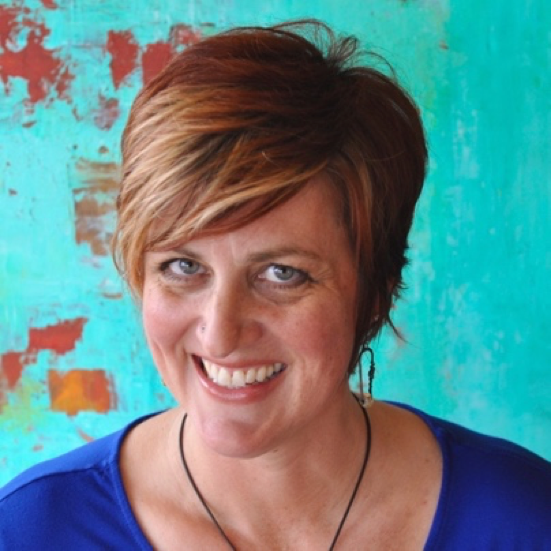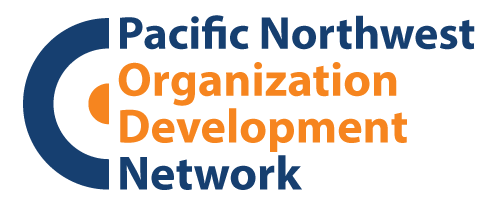|

An Evening with Geoff Bellman on May 16th!
May 16th - If I knew then what I know now -- an evening with Geoff Bellman.
Join us for this evening as we consider…
- How has your approach to your work changed over the years?
- What did you used to do that you no longer do?
- What do you believe more than ever?
- What do you regret?
- What are you proud of?
Geoff will engage us in thinking about our work as he reflects on these questions and his life. It’s seldom we have the opportunity to sit down with someone who has been active in OD for so long. Ninety minutes based on forty years of consulting experience…something good is sure to result! And, it will be fun!
This session was inspired by (and bears little resemblance to) the attached article Geoff wrote for the 40th anniversary of the OD Network.
____________________________________________________________________________

June 20th: Elemental Insight: Different by Design with Chris Richardson
Experience a cutting edge approach to tackling issues of culture change, change management, organizational design, teamwork, leadership effectiveness, and more. Understand the conditions required to realize greater clarity, increase productivity, restore balance and create flow in any organizational system.
Join Chris Richardson, CEO of Going Elemental, for an Introduction to Elemental Insight—a dynamic tool to diagnose and reveal surprising insights into organizational challenges now used in over 25 countries. Explore how things operate from an energetic perspective so individuals, teams and organizations can flourish and succeed. Experience the power of this tool, learn about common OD applications and gain new insight about yourself in the process.
Chris Richardson is an innovator focused on developing leaders to deliver breakthrough performance in their organizations and communities. She is sought after for delivering people-centric business strategies, improving organizational effectiveness, leading change, and building cohesive leadership teams. Chris holds degrees in Industrial Psychology, Organizational Development and Adult Learning and is the author of Going Elemental: The Essentials of Success. 
_____________________________________________________________________________
Plan ahead for a two-day training event
on the underlying mechanisms of successful transformational change processes at the "Dialogic OD Laboratory". October 21 - 22, 2016
All organizations grapple with change. It’s challenging to manage even when it is small-scale, specific, planned, and embraced by the organization. When it comes through unexpected disruption, and the organization faces the need for urgent, significant transformation in operations or culture, even the most experienced leader can feel overwhelmed by the complexity.
The Dialogic OD Laboratory will be an experiential, inquiry-based learning event. The Dialogic OD Laboratory will build on participants’ knowledge and/or experience with one or more dialogic methods (like Appreciative Inquiry, Open Space Technology, Dynamic Facilitation, Art of Convening). The lab will go beyond the techniques to explore the underlying change processes and frameworks required for successful application of any dialogic change process.
Dr. Gervase Bushe, Professor of Leadership and Organization Development, Beedie School of Business, Simon Fraser University
Dr. Bushe is one of the OD profession’s most original thinkers. He helped develop the Appreciative Inquiry approach to change, and authored the bestselling book , Clear Leadership. In 2009, Dr. Bushe and Dr. Robert Marshak of American University published the article “Revisioning Organization Development: Diagnostic and Dialogic Premises and Patterns of Practice,” which challenged the diagnostic foundations of modern organizational change practice. Their co-edited book, Dialogic Organization Development: The Theory and Practice of Transformational Change, will be published by Berrett-Koehler in May 2015, and reflects the results of their collaboration with an international group of scholars and practitioners to develop the theory and practice of Dialogic OD.
More details coming soon, including a free introductory webinar by Dr. Bushe on Dialogic OD.
April Meeting Review
by Jeremy Meeds
During the month of April, Barbara Dean, a globally recognized speaker on leadership and inclusion and cross-cultural business, engaged us in dialogue about the ultimate goals of diversity and inclusion. In breakout groups, we each looked at one or two of 14 categories of the Global Diversity & Inclusion Benchmarks and used these categories to assess a case study about how the national park service has been underused by certain minority groups of people. We talked about where the park service in this particular case study ranked from Level 1: Inactive, Level 2: Reactive, Level 3: Proactive, Level 4: Progressive to Level 5: Best Practice on each category. We then brainstormed ways for them to improve on each category. We ended by having a lively discussion on some of the challenges associated with building inclusive organizations.
THANK YOU FOR YOUR PARTICIPATION
We want to acknowledge and thank all of those who participated in our membership survey. As a board, using a data-driven organization development approach, we have reviewed each question and response and took action items to improve our value to you. We wanted to summarize for you what we believe our priorities are, based on your feedback. We heard you tell us that your experience has been mixed. We will get back to you shortly with what actions we are taking or have taken to improve consistency and positive responses to the PNODN experience. Please know your input and feedback is critical to make sure we are aligning to your needs and doing the right things to add value. Please don’t hesitate to offer feedback, suggestions or even let us know what you want us to do more of. Our goal is to increase membership through adding measurable value. We hope you agree that we are making a difference for you to make a difference for others.
1. Focus on Membership Value
a. More/higher caliber meeting Speakers/Events – Special speaker workshops
b. Variety in Opportunity to Engage with PNODN (more networking/dialog groups etc.)
c. Variety in content/programs i.e.
i. For consultants
ii. entry-level OD vs. Longer tenured OD
iii. Case Studies
iv. OD leaders in the field to dialog about their programs with others
d. Price-breaks for PNODN members for the above
e. Partnerships with other professional organizations: LWHRA/Seattle SHRM/ATD/Local OD programs
2. We asked specifically about your interest in Gervase R. Bushe
a. Overwhelmingly loved the Idea
b. Didn’t like the price
c. Based on this, we have invited Gervase to partner with us for his workshop – still working on pricing. Stay tuned, more to follow.
Thank you again for your feedback. If you feel we missed anything, please let us know by reaching out to info@pnodn.org.
.
| |
Case Study

Savy Slips, Learning on the Run
By Philip S. Heller
Learnings from Practice 17: Assessing Match and Motivation
How can you help create a coaching contract that sticks?
The Request. The Director of a State Department of Environmental Conservation had recently hired an expert seasoned staff from another state to be the Manager of the Hazardous Materials Division. The Manager was not fulfilling the role that the Director had envisioned. Her Deputy was directed to help the Manager improve his performance. The Deputy asked us to create a coaching relationship and through that, help the Manager more completely fulfill his responsibilities.
Larger Context. In this operations-focused state agency, the Director set the leadership culture as task oriented with quick and direct communication. The newly hired, Division Manager was not living up to three key expectations of the Department Director. The manager was caught in a bind: He was asked to deal with a direct report that was underperforming and so began a supervisory style of managing the report’s every step. What was wanted was a way to deal with the report that would gain their commitment. Also, the Division Manager tended to be risk averse and step back from input during senior leadership meetings. It seemed like the Manager was ill-equipped to fit in to the leadership culture. Finally, he was having difficulty focusing on a strategic/policy level for the Division. The Manager felt, rightfully so, that his job was on the line and so was quite defensive about being asked to work with a coach.
Consulting Intervention. The client and the coach had several initial meetings to establish a working and trusting relationship. There was also a realization that the Coach needed to model an open assessment and think out-loud process with the prospective client about the coach’s and the client’s motivations, drivers, feelings and reservations. It seemed that both the client and the coach had to demonstrate vulnerability, inclusiveness and decisively clear communication with each other. Eventually, perhaps, the client would be able to use these skills of clear leadership in the workplace.(1)
In order to build a trusting relationship, the coach suggested a series of questions and criteria that might be used to focus the discussion towards a mutual decision about whether to continue the work together. The questions were closed-ended, yet provocative, as they served as a basis for discussion and understanding of what it might take to obtain satisfying results.(2) For example, one of the questions that we used was: “Do you expect magic regarding your commitment level or natural disinclination?” The responses by the coach and the client helped formed the basis for an effective learning relationship (3).
Last Line. Using a series of questions for both the coach and the client to respond to can help to develop a shared vulnerability and honesty in the coaching relationship that will form the basis for development.
Commentary: I have used this question set in various forms as potential discussion points during the coaching contract phase. Thinking about the process now, I would still use the questions, but I would want to do more to solicit the client’s criteria for moving forward with coaching.
(1) Gevase Bushe, Clear Leadership, 2001.
(2) To access the actual questions we used, go to: http://learningdesigna.com/resourcescategory/coaching/ and select Signals for Coaching Decision.
(3) Ronald Short, Learning in Relationship, 1998
Philip Heller is a senior associate of Learning Design Associates. For 36 years he has helped plan systems change and develop leaders in government, community agencies, and health care centers. Philip received his Ph.D. in Education focusing on learning and problem solving. As part of the originating group, he has been a PNODN member since 1982.
© 2016 Philip S. Heller, Savy Slips, Learning on the Run 17. Assessing Match and Motivation
|
|
|
|



